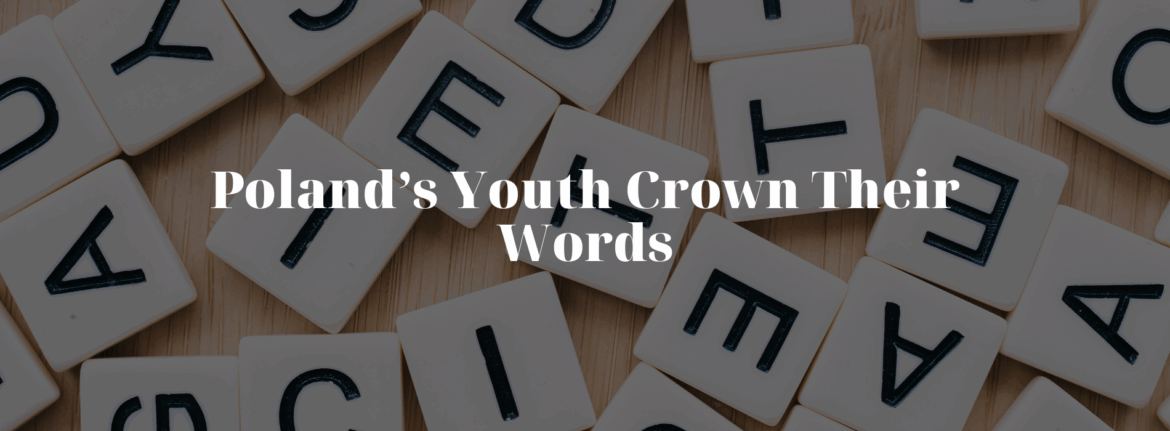Language isn’t static—it’s alive. Nowhere is that more obvious than in the ever-changing slang used by young people. Each generation invents, reuses, and redefines words to express what matters to them, how they feel, and who they are. In Poland, this evolution is celebrated annually through a special competition: Młodzieżowe Słowo Roku—the Youth Word of the Year.
What began as a linguistic curiosity has grown into a cultural phenomenon. Words like śpiulkolot, alternatywka, or essa have gone viral, split opinions, and even confused grown-ups trying to “stay cool.” But how are these slang stars chosen, and what do they reveal about Polish youth today?
Let’s dive into the world of Poland’s most popular (and sometimes puzzling) youth expressions.
A Contest with a Cause
The Youth Word of the Year contest began in 2016, initiated by Wydawnictwo Naukowe PWN, one of Poland’s most respected language publishers. It was designed not only to celebrate slang, but also to observe how language shifts with time—especially among younger speakers.
Every year, the public is invited to submit their favourite or most commonly used youth words. A jury of linguists then selects the winner based on originality, popularity, and linguistic creativity. The winning word doesn’t have to be new—it just has to reflect a specific linguistic moment.
The result? A dictionary of modern Polish slang that reflects humour, trends, moods, and even social critiques.
From “Sztos” to “Śpiulkolot”: A Short History of Winners
Let’s take a brief look at some of the winning words over the years:
- 2016 – sztos
Originally slang for something “awesome” or “top quality.” It’s a borrowed term from German criminal slang (Stoss), but in Poland it became a positive exclamation. - 2017 – XD
Not even a word! This emoticon represents laughter—eyes shut tight with joy. Its win sparked debates: can internet symbols be “words”? Clearly, the jury thought so. - 2018 – dzban
Literally meaning “jug,” but used to describe someone foolish or clueless. A sharp insult dressed in everyday vocabulary. - 2019 – alternatywka
A girl with an “alternative” vibe—often associated with indie music, black clothes, coloured hair, and emotional expression. The word reflects online youth subcultures. - 2020 – tozależyzm (honourable mention)
An ironic term referring to people who answer every question with “it depends.” A clever nod to indecisiveness or overthinking. - 2021 – śpiulkolot
Perhaps the most absurd-sounding winner yet. It’s a made-up noun from śpiulkać (to nap) + a spaceship (samolot)—a “napping aircraft.” Created purely for fun, it took social media by storm and was used to describe chill zones or a sleepy mood. - 2022 – essa
A word without a clear origin, often shouted in joy, victory, or relaxation. A bit like saying “let’s goooo” or “vibe!” Some believe it originated in street football culture. - 2023 – rel
Short for “relatable.” Borrowed from English, used to express agreement or shared feelings. For example: “Ugh, I hate Mondays.” → “Rel.”
These examples show the variety in tone—from ironic to silly, from foreign borrowings to fully invented nonsense. But all of them highlight how Polish youth use language not just to communicate, but to create identity and humour.
Not Just Words—Cultural Snapshots
Each winner says something about the mood of young people in that year.
Take dzban, for example. It became popular during heated online debates, often used to call out people considered ignorant or arrogant. It reflects a more aggressive online culture.
Alternatywka, by contrast, grew out of the TikTok boom and the visibility of niche aesthetics. It gave shape to a type of person many teens could identify with—or poke fun at.
Then there’s śpiulkolot, a symbol of comfort in stressful times, maybe even a subtle escape during the pandemic. It was a word to laugh with, not take seriously.
And essa? It’s the embodiment of effortless cool, carefreeness, and vibe culture—no one quite knows what it means, but everyone knows how to use it.
Internet, TikTok, and Meme Power
Polish youth slang today is shaped by the internet—especially TikTok, memes, YouTube, and Discord. Many words spread through short videos or memes and are forgotten within weeks. Others stick around, making their way into everyday conversations and even marketing campaigns.
Some slang comes straight from English or global online culture (rel, cringe, sus), while others are Polish twists or entirely invented sounds. It’s fast, playful, and often impossible for older generations to keep up with.
That’s part of the point. Slang creates in-groups—if you get it, you’re in. If not, well… you’re probably over 30.
The Jury and the Rules
Not every suggested word makes it to the finals. The competition has some clear rules:
- Offensive or discriminatory language is rejected.
Words that include hate speech, racism, or vulgarity are excluded, even if they’re popular. - The jury looks for linguistic creativity.
It’s not just about frequency, but how the word works in the Polish language. Does it follow interesting patterns? Is it being used in unique ways? - Some words are recognised with “honourable mentions.”
If a word isn’t selected as the winner but is still linguistically noteworthy, the jury may highlight it separately.
This ensures that the contest remains fun—but also intellectually grounded.
Language on the Move
What does the popularity of the Youth Word of the Year say about Poland?
It shows that language is not just a tool for communication, but a mirror of culture. Young people are shaping Polish in real time—by blending Polish and English, coining new terms, reusing old ones, and finding joy in wordplay.
Some adults roll their eyes. Others try (awkwardly) to join in. But ultimately, slang is natural. Every generation has its lol, yo, cool, or XD.
Whether it’s shouted on a football pitch (essa!), whispered in memes, or typed into a text at midnight, youth slang is where language lives and breathes fastest.So next time you hear a word that sounds like nonsense—śpiulkolot? rel? zgrywka?—pause before judging. You might just be listening to the future of Polish.
